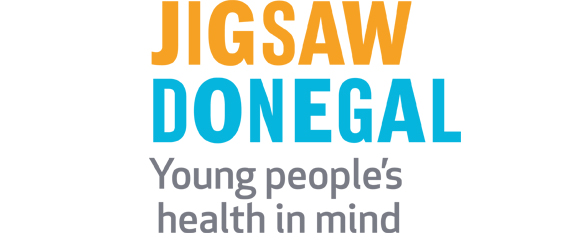New data released today by Jigsaw, the National Centre for Youth Mental Health, shows that anxiety, at 39%, was the most common mental health difficulty among young people using its service in 2017.
This figure has increased by 7% in just three years.
The Jigsaw service has a very strong presence in Donegal working locally with young people.
According to Dr Gillian O’Brien, Director of Clinical Governance at Jigsaw, there are a number of reasons behind the increase in young people feeling anxious.
She said “While many of the factors that contribute to the experience of anxiety amongst young people who come to Jigsaw for support are not new: parental separation, traumatic experiences, peer pressure, exam stress, we are also seeing the impact of issues that are more particular to life in 2018. There is a deepening sense of uncertainty amongst many young people we support in relation to their sense of identity and place in this fast paced, evolving world. High expectations of self are one key driver of anxiety which can be compounded by the expectations of parents, teachers and society at large.”
She addded that if there is something positive that can be extracted from this rise in levels of anxiety it’s that young people today are so much more literate in terms of their mental health and wellbeing than they have ever been before.
“As a society, our awareness of mental health has grown considerably and it has been normalised to such a degree that it’s now commonplace to encounter open conversations about mental health in all kinds of places. We have travelled quite a distance to a point where we’re seeing more and more young people who are comfortable articulating their feelings and seeking help. The very real challenge for us in Jigsaw, alongside other mental health services, is to ensure that help is available.” she added.
According to Jigsaw’s Annual Report 2017, other common mental health difficulties included: low mood (31%), stress (25%), sleep changes/issues (17%), anger (15%), family problems (14.5%), isolation/withdrawal (14%), self-criticism (12%), low self-esteem (12%) and thoughts of self-harm (11%). Relationship difficulties, family breakdown, bullying, exam stress, isolation and peer pressure were all seen as common contributory factors.
Encouragingly, research also reveals that Jigsaw’s early-intervention model is highly effective, with 73% of 17–25 year olds who used the service reporting a significant reduction in their psychological distress.
“We’re pleased to see that, once again, the early intervention model that we use in Jigsaw is highly effective in reducing psychological distress among young people in Ireland. The journey into adulthood can be complex and challenging, we know that more than 75% of mental health problems emerge before the age of 25. Early intervention is about taking action as soon as possible to tackle problems for young people before they become more damaging and difficult to reverse.
“It’s about being there for young people and their surrounding communities and providing timely and effective support. When a young person is developing and growing up, it is a crucial opportunity to provide them with the skills and support they need to strengthen their resilience and capabilities leading us towards a stronger and healthier Ireland.” said Jigsaw CEO, Dr Joseph Duffy.
4,300 young people nationwide were supported by Jigsaw last year and it saw a 51% increase in the number of young people using its services between May and December 2017. This increase can be attributed to the opening of three new services in partnership with the HSE in Dublin, Limerick and Cork as well as an increased awareness of the free services Jigsaw provides.
2017 saw the charity add seven new workshops aimed at parents and guardians, teachers, GPs, youth leaders and young people to its extensive education and training programme. More than 23,000 people across the country attended one of these workshops, an increase of 25% from 2016’s figures.
Tags:





